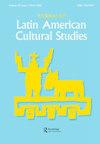Past With Present (and Future). Affective Agency in Latin American Abortion Rights Activism
IF 0.3
4区 社会学
Q4 CULTURAL STUDIES
引用次数: 1
Abstract
After a decades-long effort and a feminist movement that grew in size and scope after #NiUnaMenos, Argentina legalised abortion on 30 December 2020. Under the hashtags #QueSeaLey [#MakeItLaw] and, later, #SeráLey [#ItWillBeLaw], the massive and multi-generational campaign launched in 2018 coalesced into a milestone in Latin American politics. This article examines how online and off-line activism constituted a massive and intersectional collective in which contact with the past proved essential to mobilisation. This occurred in three ways: through the intergenerational connections that this activism established, in the challenge it posed to a progressive narrative of the movement, and in its way of linking current feminist activism with the struggles and resistance movements against the State Terrorism of the last Argentine civic-military dictatorship (1976–1983). The second part of the article is devoted to scrutinizing the case of Chilean abortion rights activism also in terms of the link it established with the past. This analysis undertakes an exploration of a key concept, affective agency, as well as its role in the construction of historical inevitability.过去与现在(和未来)。拉丁美洲堕胎权利运动中的情感代理
经过几十年的努力和#NiUnaMenos之后规模和范围不断扩大的女权主义运动,阿根廷于2020年12月30日将堕胎合法化。在#QueSeaLey[#MakeItLaw]和后来的#SeráLey[#ItWillBeLaw]的标签下,2018年发起的大规模、多代人的运动成为拉丁美洲政治的一个里程碑。这篇文章探讨了线上和线下的激进主义是如何构成一个庞大的跨部门集体的,在这个集体中,与过去的接触对动员至关重要。这以三种方式发生:通过这种激进主义建立的代际联系,通过它对运动的进步叙事提出的挑战,以及通过它将当前的女权主义激进主义与上一届阿根廷公民军事独裁政权(1976-1983)反对国家恐怖主义的斗争和抵抗运动联系起来的方式。文章的第二部分专门从智利堕胎权激进主义与过去建立的联系的角度来审视它。本分析探讨了情感能动性这一关键概念及其在历史必然性建构中的作用。
本文章由计算机程序翻译,如有差异,请以英文原文为准。
求助全文
约1分钟内获得全文
求助全文

 求助内容:
求助内容: 应助结果提醒方式:
应助结果提醒方式:


